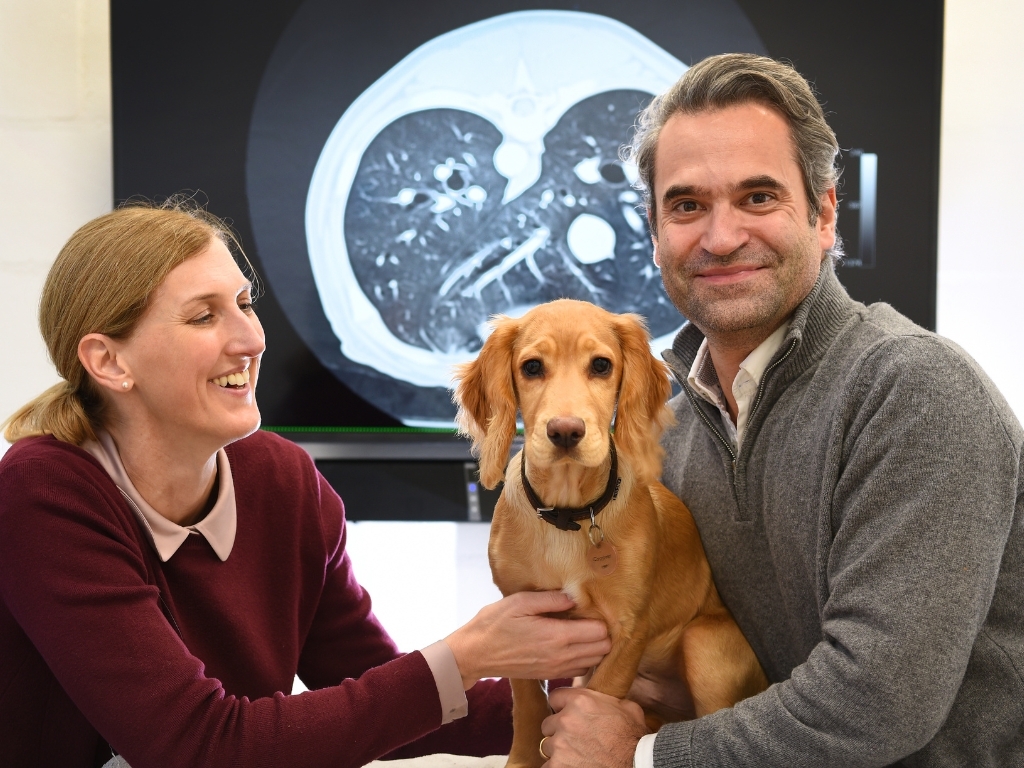
Teleradiology Provider Calls For Stringent Self-regulation Of AI
Global teleradiology, teleconsulting and education company, VetCT, is calling for companies developing and deploying AI in the field of veterinary diagnostic imaging to impose the highest standards of self-regulation.
In an AI position statement released on its website, the company highlights both the opportunities and risks associated with the use of AI to interpret diagnostic images following the recent introduction of new technologies to the UK veterinary market. In the joint statement, company owners Victoria Johnson and Julien Labruyère, said, “We strongly welcome the introduction of appropriately developed, tested and implemented AI tools into our profession, to provide solutions to improve resourcing and benefit animal welfare.
“There is a limited pool of veterinary radiologists and an ever increasing need for expert interpretation of radiographs and more advanced diagnostic imaging modalities. This presents a huge opportunity for the development of AI and related technologies to better address demand, save time and potentially improve clinical knowledge and outcomes.”
However they go on to caution, “It is important to note that, unlike human radiology, there is no official framework for the regulation, governance and quality control of AI tools in veterinary radiology. This means that there should be a very strong onus on companies and individuals to adhere to the highest standards of medical tool development when creating AI solutions.”
“If AI is released into veterinary practice without appropriate oversight or governance there is a significant risk of misleading results, misdiagnosis, and negative impacts on patient welfare. This, in turn, may undermine trust in AI and create a culture of hesitancy to adopt new technologies at a time when innovation is much needed to improve access to advanced care.”
The company is advocating for a series of self-regulatory measures to be applied by companies developing AI in order to safeguard both animal welfare and the liability of veterinary surgeons utilising these tools in clinical practice. In addition, building on published research and developing education on the application of AI technology for practitioners are important to fill current knowledge gaps.
The full position statement and a list of recommendations can be found via the VetCT website: https://www.vet-ct.com/gb/our-services/ai-veterinary-radiology/
—------ENDS—-------
Image 1: Victoria Johnson and Julien Labruyère, owners of VetCT
About VetCT:
Established in 2009 in Cambridge, UK, VetCT provides vet-to-specialist teleconsulting and teleradiology services, and novel educational strategies for veterinary medicine. Our mission is to make the veterinary world a better place by delivering trusted veterinary knowledge, support and reassurance at the point of need. We work with clients across the entire veterinary ecosystem, including students and universities, first opinion practitioners, and referral centres.
The company has subsidiaries in the USA, Canada and Australia, with over 250 staff globally, including over 200 Diploma-holding specialists across a broad range of disciplines.
For more information, please visit www.vet-ct.com.
Address: VetCT, Hauser Forum, The Broers Building, 21 JJ Thomson Avenue, Cambridge, Cambridgeshire CB3 0FA, United Kingdom
Facebook - @VETCTGroup
LinkedIn URL - https://www.linkedin.com/company/vet-ct-specialists-ltd-/
Twitter - @VetCT
Instagram - @vet.ct
More from VetCT
- Collaborative CT Gives King Kiburi the All Clear
- VET.CT Strengthens Climate Commitment with Validated Net Zero Targets
- VET.CT Cements Mission as a Force For Good Through B Corp Certification
- Popular Equine Webinar Series Returns for Fourth Year
- VET.CT Supports Universities and Learners to Get the Grades

 3 years ago
3 years ago  893 views
893 views